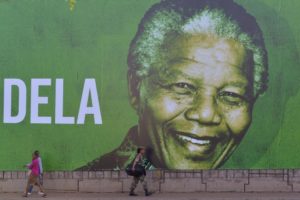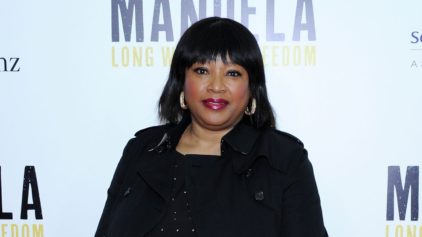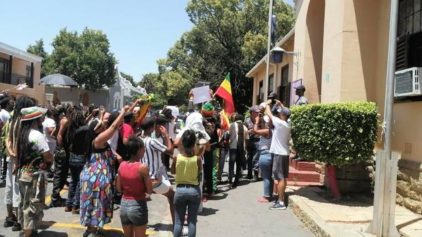
But two years after his death, a heated debate has emerged in South Africa that questions part of this towering legacy: was Mandela a sellout?
To some this might seem a shocking, even taboo sentiment. Here in South Africa it speaks to the feeling that black people got a raw deal in the negotiations that ended apartheid.
While black South Africans achieved political freedom, much of the country’s wealth remained in white hands — seen as a necessary compromise to protect the economy. Today, more than two decades later, economic apartheid continues and the pace of change is slow. South Africa is one of the most unequal countries in the world. By one estimate, a white household on average earns six times more than a black one.
The questioning of Mandela’s legacy is not new, but the issue has flared in recent weeks following comments by Julius Malema, the outspoken former youth league leader of the African National Congress, Mandela’s party.
Malema, who was expelled from the ANC and now leads the leftist Economic Freedom Fighters, told Oxford students while on a UK speaking tour that Mandela, after his release from prison, was co-opted by wealthy white businessmen.
“The Nelson we celebrate now is a stage-managed Mandela who compromised the principles of the revolution, which are captured in the Freedom Charter,” Malema was quoted as saying, referring to the 1955 document adopted by the ANC and its allies.
The questioning of Mandela’s legacy is not new, but the issue has flared in recent weeks following comments by Julius Malema, the outspoken former youth league leader of the African National Congress, Mandela’s party.
Malema, who was expelled from the ANC and now leads the leftist Economic Freedom Fighters, told Oxford students while on a UK speaking tour that Mandela, after his release from prison, was co-opted by wealthy white businessmen.
“The Nelson we celebrate now is a stage-managed Mandela who compromised the principles of the revolution, which are captured in the Freedom Charter,” Malema was quoted as saying, referring to the 1955 document adopted by the ANC and its allies.
Read the full story at globalpost.com

